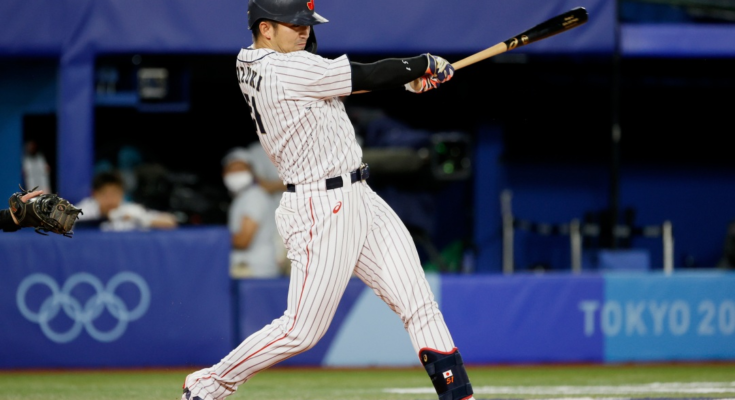Japanese outfielder Seiya Suzuki became the talk of the rekindled hot stove when MLB’s lockout ended last week. Reports linked him to several teams at wildly different stages in the whole “winning” process: specifically the Padres, Dodgers, Red Sox, Giants, Mariners, and Cubs. Though many saw the Padres as the front-runners—after all, they should be desperate to reopen their window after the brutal disappointment of last season—it was, of all teams, the Cubbies that seemed to forget they were supposed to be tanking and reportedly won the sweepstakes. For five years of Suzuki in the outfield, the Cubs will pay $85 million—the second-largest contract ever for a Japanese player coming to MLB, after Masahiro Tanaka.
A few different factors have combined to saddle the 27-year-old Suzuki with some pretty high expectations coming into the league, a lot of which are entirely out of his control. For one, the unbelievable awesomeness of Shohei Ohtani sets a ridiculously high bar for any other Japanese player entering MLB. For another, the relative mysteriousness of the Japanese league for American fans lends itself all too well to hype and excitement in the build-up to Suzuki’s debut on U.S. television. And finally there’s the fact that this very recently unknown player is suddenly the second-highest paid player on the Cubs, behind struggling fellow right fielder Jason Heyward. (The new National League DH probably helped a bit in getting this deal done).
That’s a lot of pressure to put on a new guy! But it’s not like he doesn’t have the numbers worthy of this kind of bidding war. Last season, Suzuki led the Central League by slashing .317/.433/.639 and his 38 big flies left him just one short of the home run crown. He’s been a consistent 30 dinger/.300 average guy for the Hiroshima Carp since his first full season at age 21. Those who are more knowledgeable than me—or, anyway, Dan Szymborski’s ZiPS projections—have Suzuki pegged as being worth almost exactly what the Cubs paid for him, with an OPS+ around 125 for the length of the deal and a 25 HR/.280 average pace that slightly declines into his 30s. Imagine a contributor in the vein of, say, Randy Arozarena.
That’s the bloodless way of looking at Suzuki. The other way is the one I can’t help but prefer—the one in which I cue up some slightly blurry highlights of Suzuki on Youtube and marvel at his mighty swings while talking myself into the belief that the Japanese and American games are a perfect 1:1 transfer. Take a look at all the baseballs he’s disappeared:
He sends these babies into frickin’ orbit, clubbing them into history with emphatic U-shaped swings. WHAM! POW! BOOM! Look at the seat he blows up at 0:19. Or check out how it leaves the ballpark entirely at 1:12. Or the thrill of the fan’s eye view you get at 2:48. This is the kind of titan I’d want on my team. Badly.
I like what I’ve seen of Suzuki in interviews, too, where he comes off as level-headed, humble, and a real fan of the sport—and consequently someone who’s highly motivated to test himself against the best. But he also doesn’t seem to take himself too seriously. He wears #51 on his jersey now, for a probably obvious reason, but in one interview he said in MLB his choice would be #27, for Mike Trout. Asked what would happen if he met Trout, Suzuki replied, “I would be shaking.”
In another press conference from last year, he was asked when he knew he wanted to go to MLB. “The moment I was born,” he responded with feigned bright-eyed earnestness, holding in a laugh for as long as he could before discussing how Hiroki Kuroda was actually the one who opened his eyes to the other side of the world.
I’ll be honest: It’d rule a lot more if the stat projections said that Suzuki would be blasting taters into MLB bleachers from coast to coast every night with the same frequency and intensity that he did in Japan. The more likely reality is that Suzuki will be … solid! A fine baseball player. Good ol’ Seiya. This is fine; the odds are always going to be against lightning striking.
But that doesn’t do a whole lot to nullify the anticipation of these pre-debut weeks. Hair-raising, fully formed talents arriving out of nowhere is just about the best thing that can happen in any sport, and even if he’s not exactly a generational dude like Ohtani, Suzuki should be good for at least a few more jaw-dropping moments than MLB and the Cubs would have delivered without him. If nothing else, he is a reminder that there’s nothing more exciting than being a fan of a baseball team that spends money on cool players.


